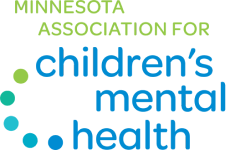Toolkit for Healing-Centered Practice
Resources to Support Your Work
Get Updates on the Toolkit
If you would like to receive updates on the toolkit as it is created or provide feedback to help us continue expanding our resources, please reach out to MACMH’s Infant & Early Childhood Director Lauren Moberg at lmoberg@macmh.org.
Welcome to our Toolkit for Healing-Centered Practice, designed for professionals who work with children prenatal to age 6, their families and those who care for them.
As you explore our resources on stress and trauma-informed care, the roadmap below can guide you in finding information tailored to your needs. Our resources are broken into three categories.
- Explores Category: These resources explore the impacts of stress and trauma on young children and their families and caregivers, and why trauma-informed care matters in early childhood. They are a good starting place if you are new to learning about stress/trauma in early childhood.
- Implements Category: These resources examine ways to support children and families with a stress and trauma-informed lens. They will begin to show you how to put knowledge into practice as you become more comfortable with your understanding of stress/trauma in early childhood.
- Designs & Leads Category: These resources provide guidance in using a stress/trauma-informed lens to transform and sustain systems.
The categories above mirror Minnesota’s Knowledge and Competency Framework for Early Childhood Professionals where each area in the framework contains three categories of competency. To learn more about the framework, particularly related to competencies around trauma-informed care, you can download the full document tailored to work with preschoolers. Refer to content area IX on page 64 for the information on Trauma-Informed Care and Practice.
We hope this toolkit serves as a valuable resources in your work with children and families. Visit us again soon as the toolkit continues to be expanded.
Roadmap for Healing-Centered Practice
Relationship
Explores
Understanding how stress and trauma impact young children, their families and caregivers, and why stress/trauma-informed care matters in early childhood.
Designs & Leads
Using a stress/trauma-informed lens to transform and sustain systems.
Implements
Supporting children and their families and caregivers with a stress/trauma-informed lens.
Equity
Resources


























